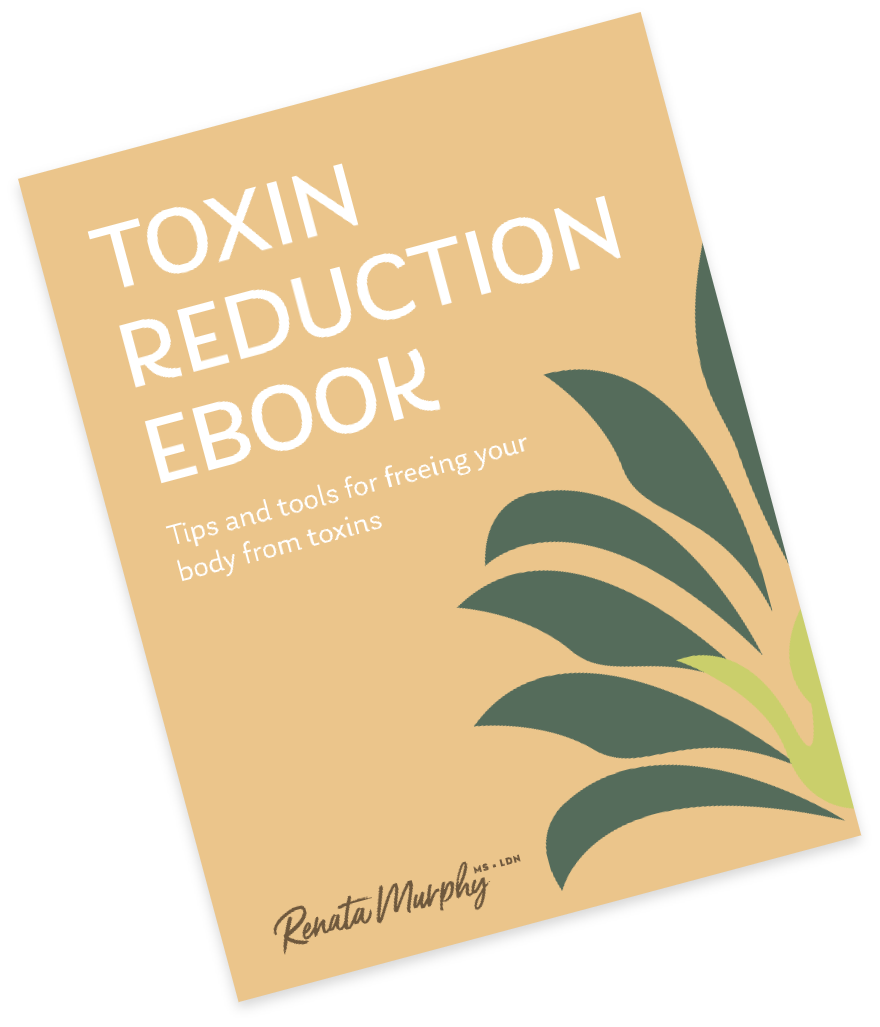Wondering about leaky gut?

Harvard Health calls it a “medical mystery” and “mysterious ailment.” It’s been linked to everything from gut troubles, autoimmune diseases, and even mental health concerns. I’m talking about “leaky gut” or “intestinal permeability”—have you heard of it? Many doctors and the established medical community may not recognize it, but growing research suggests it is associated with many health conditions. What exactly is “leaky gut?” Do you have it? How does it happen? What can you do about it?
What is “leaky gut?”
Your gut (gastrointestinal system) is not just a 30-foot-long muscular tube (tract) that starts at your mouth and ends with you going to the bathroom. It’s, in fact, It’s a vast and complex system with many functions. It breaks down food into smaller digestible bits, keeps it moving through the gastrointestinal tract, and skillfully absorbs water and nutrients while keeping out harmful substances. More and more research shows that these essential gut functions are interconnected throughout your body—to everything from your heart to your brain.
Your gastrointestinal tract is lined with millions of cells in a single layer, all side-by-side. In fact, this layer, if spread out flat, covers 400m2 of surface area! Those intestinal cells help the body absorb what we need from foods and drinks while keeping out what needs to stay out. It acts as a gatekeeper allowing in what your body uses and keeping out the rest which ends up as waste. This ability to selectively allow some things in our gut to be absorbed while keeping others out is only possible if the cells are working properly and physically joined together very tightly. The bonds that keep the cells tightly together are called “tight junctions.”
Leaky gut happens when the tight junctions aren’t so tight anymore. The cellular barrier is irritated and weakened, allowing tiny holes to appear. These perforations allow things that normally would stay out of the bloodstream to get into the bloodstream. Things like food particles, waste products, and bacteria.
When these get into the bloodstream, your immune system is triggered to start fighting them, similar to how your immune system starts fighting the cold virus and causes inflammation. This immune reaction is normal and helps keep you healthy.
Do you have a leaky gut?
The symptoms of leaky gut are similar to those of other digestive conditions like inflammatory bowel disease, celiac disease, and Crohn’s disease. Symptoms can include diarrhea, constipation, cramps, bloating, food sensitivities, or nutrient deficiencies.
But, because the food particles, toxins, and bacteria have been absorbed into the bloodstream which travels throughout your body, symptoms can appear anywhere. Studies show that leaky gut may feel like fatigue, headaches, confusion, difficulty concentrating, joint pain, or skin problems (e.g., acne, rashes, eczema). Leaky gut is also linked with diabetes, polycystic ovarian syndrome, liver disease, chronic fatigue syndrome, and autoimmune diseases such as lupus and multiple sclerosis. There may even be links to anxiety and depression.
Many of these gut and non-gut symptoms and conditions are linked to chronic inflammation, but more research is needed to understand how they are connected.
Even if you have some of these symptoms, the fact is, it’s complicated to diagnose a leaky gut, nor how leaky it is. This means that, while there are some biomarker tests, there isn’t a reliable diagnostic test available just yet. So, it’s difficult to say whether your symptoms are from leaky gut, or whether leaky gut is a symptom of another issue.
What causes leaky gut?
It’s not 100 percent clear what causes those bonds to loosen and result in tiny perforations in the gut barrier. In fact, we’re just starting to understand how the gut barrier functions, and there is a lot of ongoing research.
Part of leaky gut may be due to the genes you inherit from your parents. It can also be from medications or gut infections. Leaky gut is also linked to eating a diet that is low in gut-friendly fiber (adults should aim for 25-30 g of fiber per day). It can also be from consuming too much added sugar and saturated fat. Leaky gut may even result from stress or an imbalance in the diversity and numbers of your friendly gut microbes.
Also, as you age your cells can get damaged more easily and heal slowly, including the cells that line your gut. This can leave you more susceptible to loosening of the gut barrier.
What can you do about leaky gut?
One way to approach a suspected leaky gut is to address inflammation and eat a more gut-friendly diet. This means reducing excessive alcohol and processed foods that tend to be high in fat and sugar or artificial sweeteners. It’s also a good idea to avoid foods that you are allergic or sensitive to. For example, if you have diagnosed celiac disease, you want to be sure to stay away from gluten, as exposing your gut to it can cause a large inflammatory response.
Instead, enjoy more foods rich in gut-friendly probiotics and fiber, prebiotics, or food for your friendly gut microbes. These include:
- yogurt or kefir
- fermented foods (e.g., kimchi, sauerkraut, and miso)
- fruits and vegetables (e.g., berries, oranges, broccoli, carrots, and zucchini)
- nuts and seeds (e.g., flaxseeds, walnuts, cashews, and chia seeds)
- Whole grains (e.g., oats, brown rice, and quinoa)
Pro Tip: If you’re going to increase your fiber intake proactively, do it over several days or weeks because sudden increases in fiber can cause gas, bloating, and other gut discomforts. If you have IBS, talk to your doctor or me Book a free call to see if certain fibers may worsen your condition and which are recommended.
Also, regular exercise can help your digestive system. This means taking even a 15- or 20-minute walk after eating to help you digest your food. And don’t forget the importance of stress management, quality sleep, and not smoking.
If you plan on making changes to your diet and lifestyle, consider keeping a journal to help see if the changes are relieving your symptoms.
Final thoughts
When it comes to leaky gut, a few simple shifts toward a gut-friendly diet can help you address gut problems.
A leaky gut is associated with gut and non-gut symptoms. It’s an inflammatory condition that has been linked to metabolic disorders, autoimmune diseases, and even mental health. There is no good diagnostic test at this time to know for sure if you have it or not. And remember, this is still a relatively new area of research, so more information emerges all the time.
In the meantime, if you have symptoms that suggest a leaky gut, you can move toward a more gut-friendly diet. Try cutting down on alcohol, processed foods, and any that you may be allergic or sensitive to. Replace these foods and drinks with ones higher in gut-friendy probiotics and fiber. And remember that regular exercise, stress management, and quality sleep are great lifestyle strategies for your gut and the rest of your body.
References
Harvard Health. (2018). Putting a stop to leaky gut. Retrieved from https://www.health.harvard.edu/blog/putting-a-stop-to-leaky-gut-2018111815289
Harvard Health. (2018). Putting a stop to leaky gut: What can you do about this mysterious ailment? Retrieved from https://www.health.harvard.edu/diseases-and-conditions/putting-a-stop-to-leaky-gut
Leech, B., Schloss, J. & Steel, J. (2019). Association between increased intestinal permeability and disease: A systematic review. Advances in Integrative Medicine. 6(1), 23-34. https://doi.org/10.1016/j.aimed.2018.08.003 https://www.sciencedirect.com/science/article/pii/S221295881730160X
Mayo Clinic. (2016). Food sensitivities may affect gut barrier function. Retrieved from https://www.mayoclinic.org/medical-professionals/digestive-diseases/news/food-sensitivities-may-affect-gut-barrier-function/mac-20429973
Medical News Today. (2019). What to know about leaky gut syndrome. Retrieved from https://www.medicalnewstoday.com/articles/326117.php
Medical News Today. (2019). What is the best diet for leaky gut syndrome? Retrieved from https://www.medicalnewstoday.com/articles/326102.php
Medscape. (2019). Is ‘Leaky Gut’ the Root of All Ills? Retrieved from https://www.medscape.com/viewarticle/913237
Mu, Q., Kirby, J., Reilly, C. M., & Luo, X. M. (2017). Leaky Gut As a Danger Signal for Autoimmune Diseases. Frontiers in immunology, 8, 598. doi:10.3389/fimmu.2017.00598 https://www.ncbi.nlm.nih.gov/pmc/articles/PMC5440529/
National Institutes of Health News in Health. (2017, May). Keeping Your Gut in Check. Retrieved from https://newsinhealth.nih.gov/2017/05/keeping-your-gut-check
Obrenovich M. (2018). Leaky Gut, Leaky Brain? Microorganisms, 6(4), 107. doi:10.3390/microorganisms6040107 https://www.ncbi.nlm.nih.gov/pmc/articles/PMC6313445/
US Department of Health and Human Services and US Department of Agriculture. (2015). Dietary Guidelines for Americans 2015-2020, eighth edition. Appendix 7. Nutritional Goals for Age-Sex Groups Based on Dietary Reference Intakes and Dietary Guidelines Recommendations. Retrieved from https://health.gov/dietaryguidelines/2015/guidelines/appendix-7/







